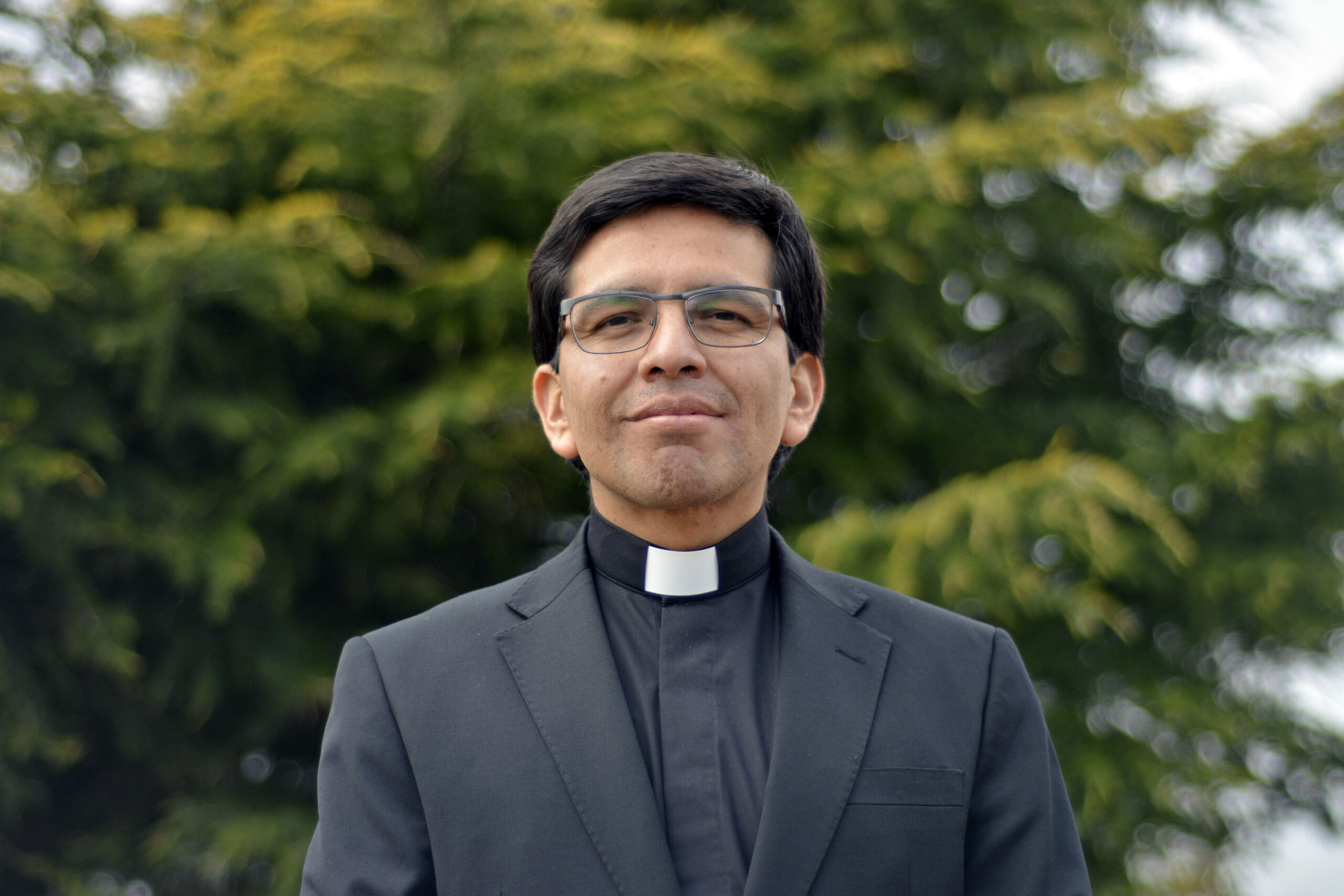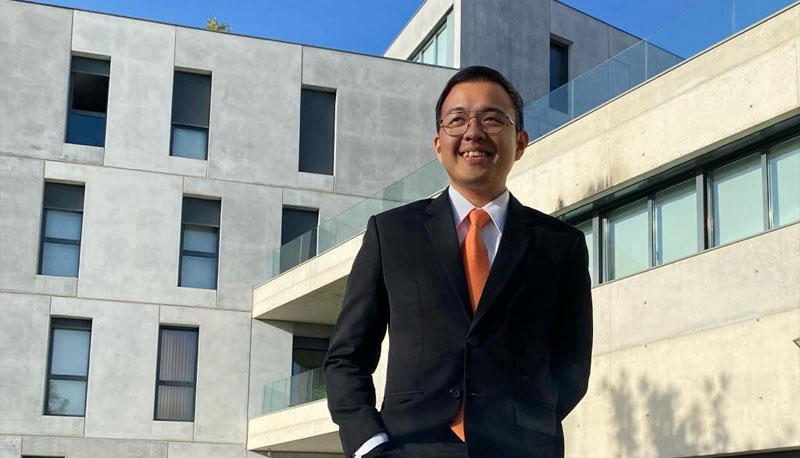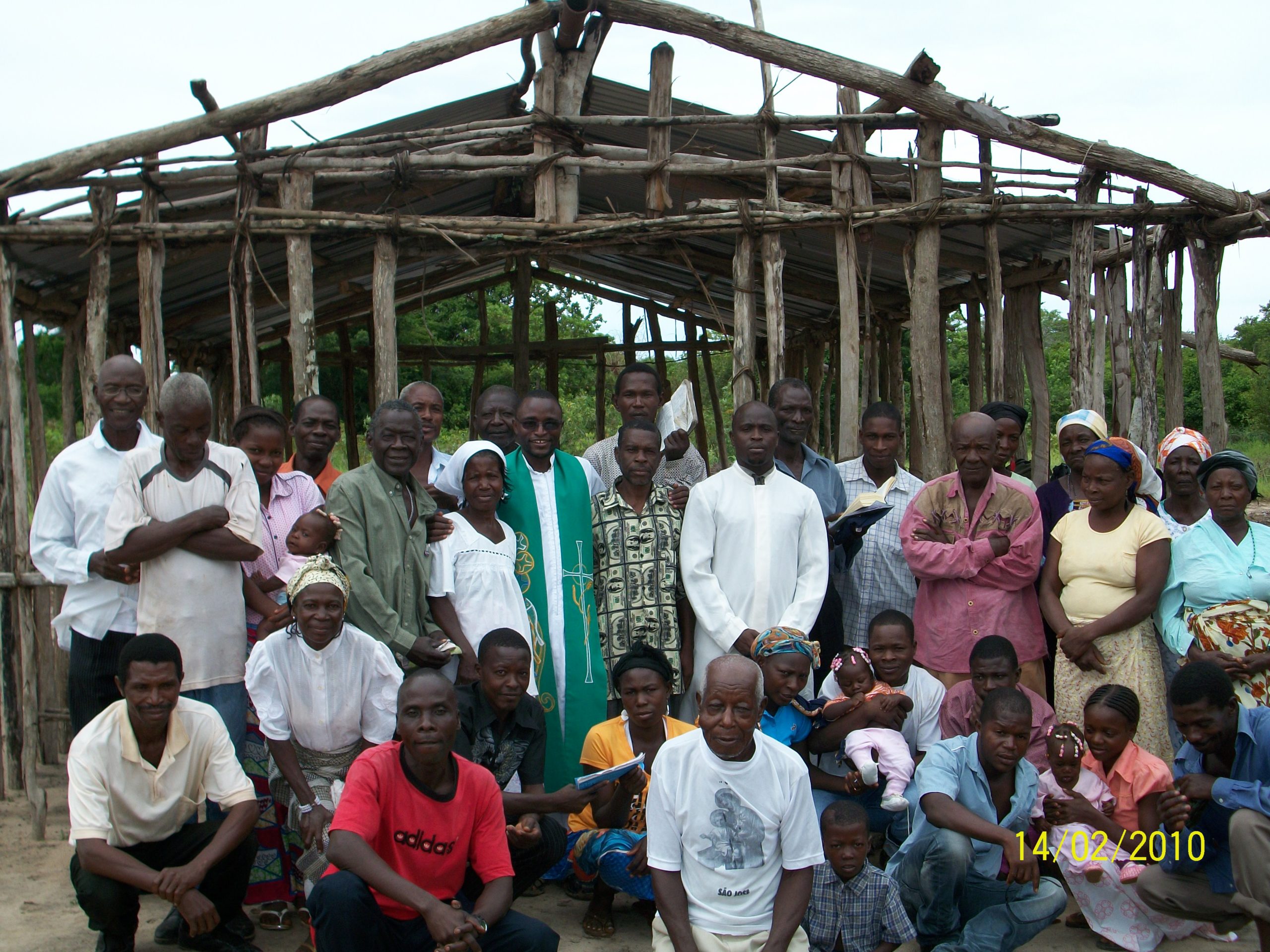
Father Queirós Figueras was born in Kibala, in the Province of Kuanza-sur, Angola, on July 14, 1978. He is studying a Licentiate in Communication at the Pontifical University of the Holy Cross in Rome thanks to a scholarship from CARF - Centro Academico Romano Foundation. As a child he suffered the sufferings of war in his country. And as a priest, he has seen the disaster in terms of poverty and lack of development in his country. "Unfortunately, the almost thirty years of military conflict have caused, in Angola, not only victims and refugees, but also losses of physical and economic capital," he recounts.
Therefore, he affirms that with God's help it will be possible to rebuild a country, to give it new perspectives to find peace and so that the people of Angola can recover the basic conditions of an existence devastated by war.
Once upon a time there was a little old lady who sold glue and ginger.
and in the afternoon I washed the clothes of an important boss.
And we, the children, coming out of school, would ask grandma:
"What is the reason for our poverty and all the suffering?".
And she answered:
"Oh, child, I don't know about politics!".
But the old lady, immersed in her thoughts,
knew, but did not tell, the reason for that suffering.
These are the lyrics of a wonderful song, whose title is "Velha chica" (the little old lady). It was written by Waldemar Bastos, an Angolan singer and musician who grew up in Portugal, fleeing the war in his country. Bastos sang the same song with the famous Portuguese singer Dulce Pontes which can be seen here here on YouTube.
With the notes and lyrics of this song in the background, we met with Father Queirós Figueira, to continue our reports on the Faculty of Institutional Communication on the occasion of the 25th anniversary of its foundation..
P. Queirós, thank you very much for sharing with us, in your beautiful Portuguese, the history of you and your country.
Thanks to you, it is a pleasure to be able to communicate with Spanish-speaking readers.
The song Velha chica, by Waldemar Bastos, tells us about the suffering of an innocent people and the questions of children in the face of war. Were you one of those children in Angola?
Yes, like most of the children of my generation. In fact, I was born in a village called Utende, in the municipality of Kibala, but I had to move with my family to the city of Luanda, where I grew up on the outskirts of the capital with my parents and siblings, being the second child of seven siblings. We had to flee because of the civil war that the country was experiencing at the time, in 1983.
So you were able to grow up quite protected...
Yes, and surrounded by a very lively faith. As soon as I arrived in Luanda, I began to frequent the Parish of Nossa Senhora das Graças. I grew up in this parish, participating in the catechesis of childhood and adolescence and being part of the groups of acolytes and missionaries who took care of us, children and young people. Then in 1995 I made my first communion and in 1997 I received the sacrament of confirmation. At that time I was already attending the vocational group and in 1998 I asked to enter the Seminary of the Archdiocese of Luanda, to attend the introductory course. It was a beautiful time, in fact I was able to deepen the call that the Lord had placed in my heart to serve him as a priest. But a year later, I had to leave the seminary to do my compulsory military service.
And did you have to go to war?
No, thanks to God and to my family's opposition. So I was able to return to the seminary and was able to attend the Philosophy and Theology course in 2009. At that time, the city of Luanda had only one diocese, which was divided into three in 2007 by Pope Benedict XVI. So I left the Archdiocese of Luanda and was ordained a priest on November 21, 2010 in the Diocese of Viana, by Monsignor Joaquim Ferreira Lopes, the first bishop of that same diocese.
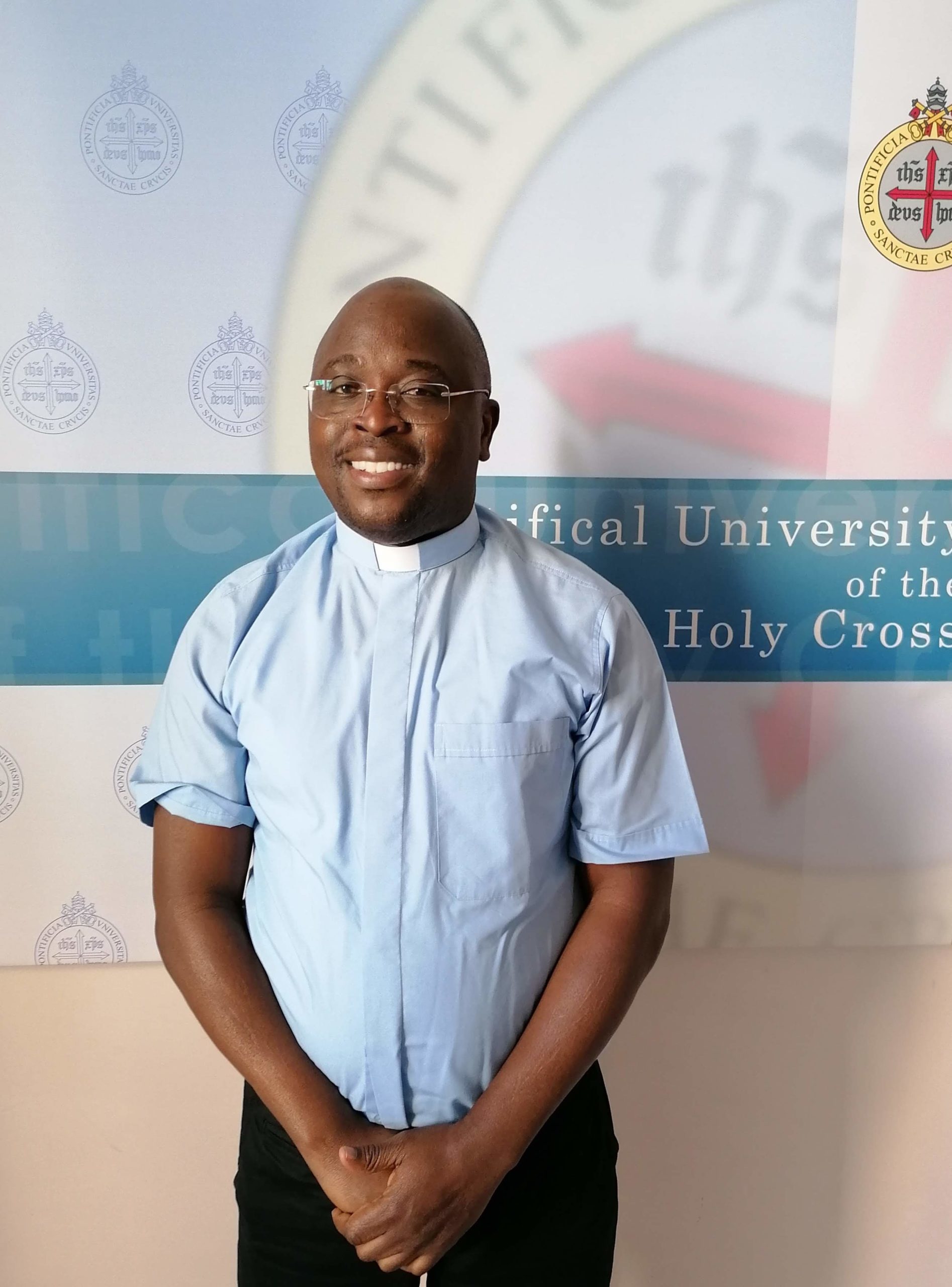
Father Queirós Figueiras is studying for a degree in Institutional Communication at the Faculty of Communication of the Pontifical University of the Holy Cross in Rome. He was born in Kibala, in the Province of Kuanza-sur, in Angola, 42 years ago. He is the second of seven siblings. As a child he suffered the horror of war, but he says he always grew up with the support of his family and a very strong faith. He escaped the war thanks to God and the help of his family. He was ordained a priest on November 21, 2010 in the Diocese of Viana, by Monsignor Joaquim Ferreira Lopes, the first bishop of the same diocese.
As a priest, you have faced the difficulties of the Angolan post-war period and the consequences of the conflict?
Indeed. Already in my period of pastoral apprenticeship, before ordination as a deacon, I could see, in the territories of the parishes where I served, the disaster in terms of poverty and lack of development. Unfortunately, the almost thirty years of military conflict have caused, in Angola, not only victims and refugees, but also losses of physical and economic capital (infrastructure, housing, labor), which has led to a reduction in the welfare of the country, which remains one of the poorest in the world.
It should be remembered that Angola suffered one of the longest and bloodiest civil wars of our time.
Yes, in fact it started after the proclamation of national independence in 1975, in an open struggle between three parties, the Movement for the Popular Liberation of Angola (MPLA), the National Union for the Total Independence of Angola (UNITA) and the National Front for the Liberation of Angola (FNLA).
And it was an inter-ethnic conflict but, at the same time, it was also one of the many "proxy wars" that characterized the Cold War: in fact, one of the main characteristics of the conflict was the direct and indirect involvement of other countries such as the USSR, Cuba, South Africa and the United States.
And it only came to an end in 2002, with the death of UNITA leader Jonas Savimbi. With the end of the war, the focus in Angola clearly shifted to the possibilities of peace to generate prosperity in the country, along with the increasingly clear notion that national priorities would evolve from an emergency context to a development context, prioritizing growth with economic diversification, the fight against hunger and poverty reduction.
When the war ended in 2002, with the victory of the MPLA, more than 500,000 people had died and more than 1 million had been forced to flee their homes. The country's infrastructure was devastated. The Church still needs the help of Christians around the world, not to mention child soldiers! Human Rights Watch (HRW) estimated that UNITA and the government employed between 6,000 and 3,000 child soldiers respectively during the war, some forcibly. In addition, HRW analysis showed that between 5,000 and 8,000 underage girls had to marry UNITA militiamen. As with ISIS in Syria and Iraq, UNITA militiamen in Angola were rewarded with women, who were often sexually abused.
Yes, and many had to be relocated after the war. The reunification of families separated by the war is one of the priorities. In fact, the living conditions of the population, after forced displacements, with insecurity, food shortages leading to malnutrition, problems in accessing the health and education system, are very bad. After the war, the Angolan governments launched a strategy to fight poverty which, as a direct consequence of the conflict, affects mainly the rural areas, since the war limited the population's access to cultivation areas and markets, and destroyed the peasants' resources; it emptied the fields of work, forcing thousands of people to move to the cities.
Lots of work to be done!
With God's help... It is necessary to rebuild a country, to give it new perspectives related to peace so that the people of Angola can recover the basic conditions of an existence devastated by war. In material terms (recovery of physical capital, territorial mobility in safe conditions, reunion and reunification of families separated by the war, growth of the economy and job opportunities, access to goods and services) as well as in spiritual and human terms. The Catholic Church, in particular, through its missionaries, continues to assist the government in rebuilding the social fabric, in providing the population with food, education and vocational training, as well as health assistance in the fight against the scourge of AIDS.
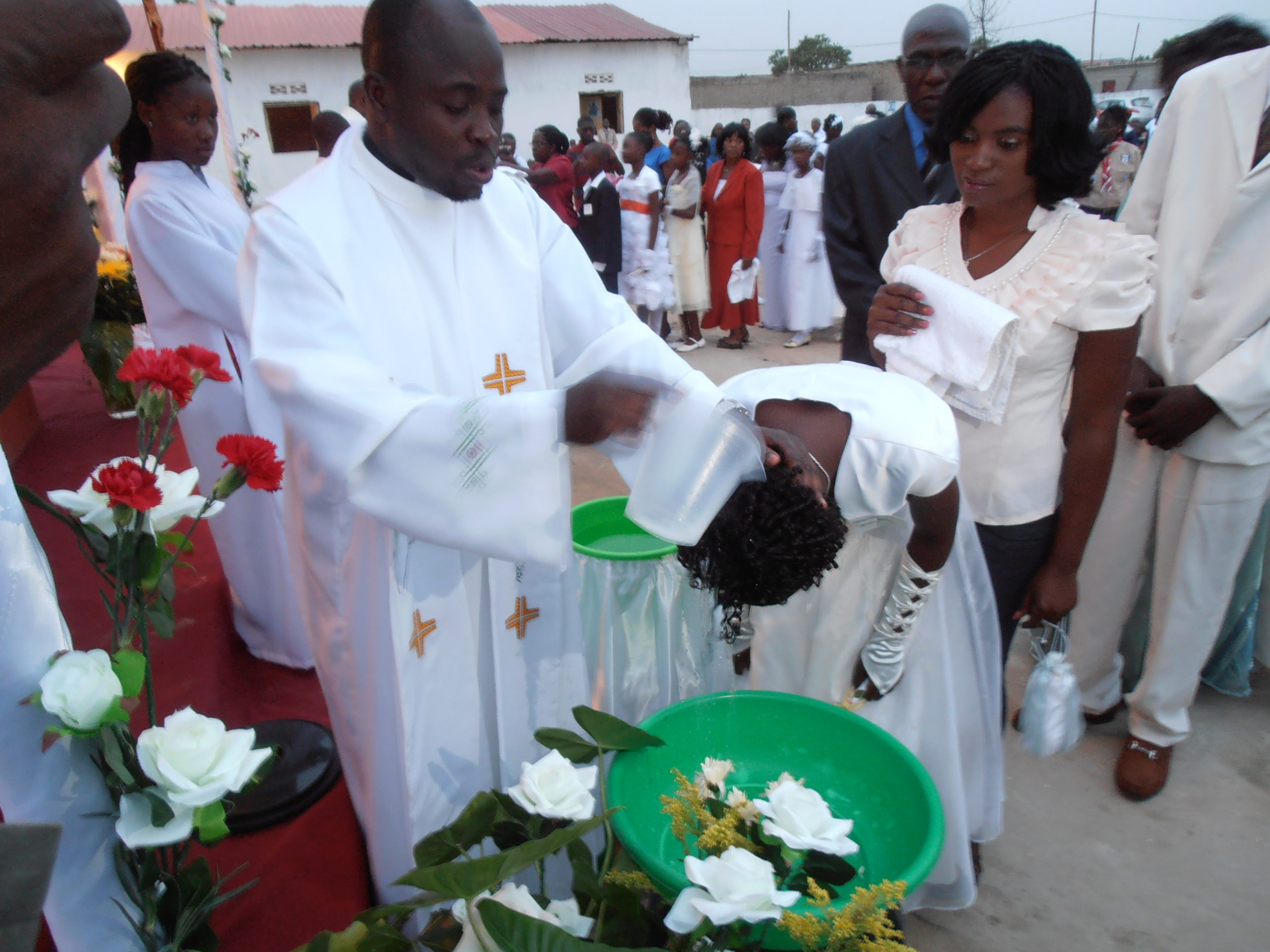
From his ordination until 2019, he was pastor of one of the most populous parishes in Viana: the Parish of São Paulo. "Here I could see how great is the mission to which God calls me and calls all of us priests," says Fr. Queirós.
This Angolan priest explains that the Catholic Church, in particular through its missionaries, continues to try to help the government in the reconstruction of the social fabric, in providing the population with food, education and vocational training, as well as health assistance in the fight against the scourge of AIDS.
In a world as globalized as ours, the only institution that remains at the side of the people when the state fails, the economy fails and health care fails is the Catholic Church. Despite wars and persecutions, priests and missionaries remain in those places and among those people who suffer most from injustice.
Yes, in fact, since my ordination until 2019, I was pastor of one of the most populous parishes in Viana, which is the Parish of São Paulo. Here I could see how great is the mission to which God calls me and calls all of us priests.
And why study communication?
Well, it is the new frontier... Being also director of Radio Maria-Angola and Episcopal Vicar for Evangelization and Catechesis, I realized that today, in a world dominated by new technologies, the Church must train its members to adapt to the new methods of transmitting the faith. We know that the message is the same, the doctrine is the same, but the methods of transmission are changing and we need to keep up with these new challenges. Already the Second Vatican Council, in the Council Decree "Inter Mirifica", took this step, asking pastors to use technological means to evangelize. Therefore, my bishop sent me to study in Rome, at the Faculty of Social and Institutional Communication of the Pontifical University of the Holy Cross.
Thus, priests whose mission is to evangelize come to Rome to receive a good and solid academic and spiritual formation and then return to their countries to be like leaven that leavens the whole mass of society and restores to it the soul that has often been dragged out by war and violence.
This is precisely my desire: I want to return to my country, in a year and a half, and help my diocese to develop its pastoral care and evangelization, thanks to the excellent formation received in this great Pontifical University, where I met professors who take care not only of the academic growth of the students, but also of the human and spiritual development, which is as important as theological and communication tools.
Thank you very much, Father Queirós... You give us a message of hope, despite all that your country has suffered. As we see in Angola. in Syria or Iraq and in many countries that continue to suffer from war, conflicts end but the wounds and scars remain... However, we must not lose faith.
Of course! And moreover, I see that today Angola urgently needs people trained in various areas of knowledge, precisely because the consequences of the long war that ravaged the country are still visible today. For this reason, I would like to thank the benefactors of CARF - Centro Academico Romano Foundation, the Pontifical University of the Holy Cross and the Catholic Church for all the help provided not only to me, but to all Angola and Angolans through the training of priests.
This is why the Church is catholic, which means "universal", of the whole world. We are no longer just Jews or Greeks, as St. Paul said, or Spaniards or Italians... All Christians are citizens of the world, and therefore Angolans, Iraqis, Chinese, Syrians, etc.
And time passed
And the old lady got even older
A zinc-roofed hut was built.
And who sees the face of that lady today,
only sees the wrinkles of suffering.
And now she just says:
Oh, child, when I die
I want to see Angola and the world at peace
Like her, we all want to finally see the world at peace.
Gerardo Ferrara
BA in History and Political Science, specializing in the Middle East.
Responsible for the student body
University of the Holy Cross in Rome
